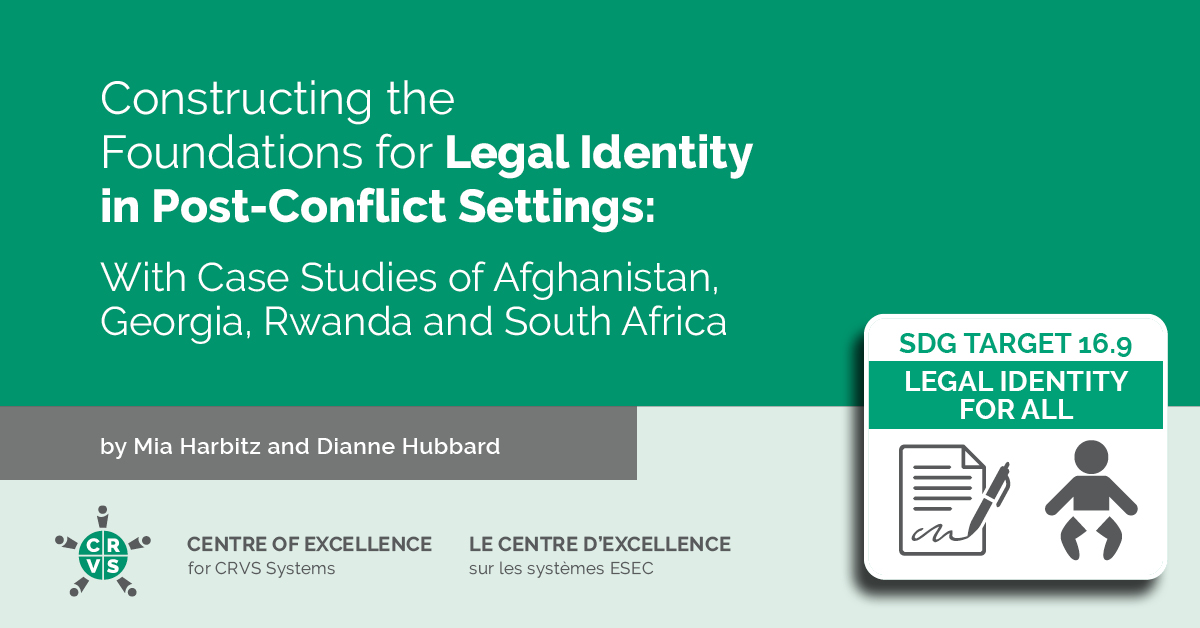Despite mounting evidence of the need for people to have trusted and trustworthy identity credentials, little attention has been paid to the key determinants of an identity management system that establishes a person’s unique legal identity and issues reliable official identity credentials. Also overlooked is a country’s ability to register and give legal identity to everyone who lives within its borders, regardless of citizenship status.
This paper aims to contribute to the achievement of Target 16.9 under Sustainable Development Goal 16 by analyzing the role of the civil register and the legal underpinnings for identity in four countries: Afghanistan, Georgia, Rwanda, and South Africa. It describes institutional and operational models in each country that support universal registration of births, deaths, and other vital events. Specifically, it describes the legal frameworks for civil registration (sovereign responsibility), institutional and administrative arrangements, registration of undocumented adults, marginalized populations and refugees, and legal and administrative capacity to handle adverse situations. It concludes by noting some areas needing particular attention.
While the four countries are at different stages of maturity of their identity management systems, they are concerned with many of the same issues, such as increasing the coverage of civil registration, improving civil registration statistics, and advancing the efficiency, functionality, and coverage of their national identity management arrangements. Implicitly, the countries are attempting to provide all citizens, residents, and refugees with a legal identity, but in practice some of the countries fall short. The four countries have experienced, or are experiencing, internal conflict of varying degrees, from South Africa’s repressive apartheid regime to Afghanistan’s ongoing armed struggle, with Rwanda’s genocide as a defining moment for reconciliation, and Georgia’s latent ethnic frictions. Thus, despite the many differences between these four countries, they are instructive as a spectrum of approaches to identification management in post-conflict settings, with a number of commonalities.
Download the full paper or the synthesis brief.
Find our legal ID webinar on YouTube to hear from authors Mia Harbitz and Diane Hubbard as well as distinguished experts Montasser Kamal and Jonathan Klaaren.
